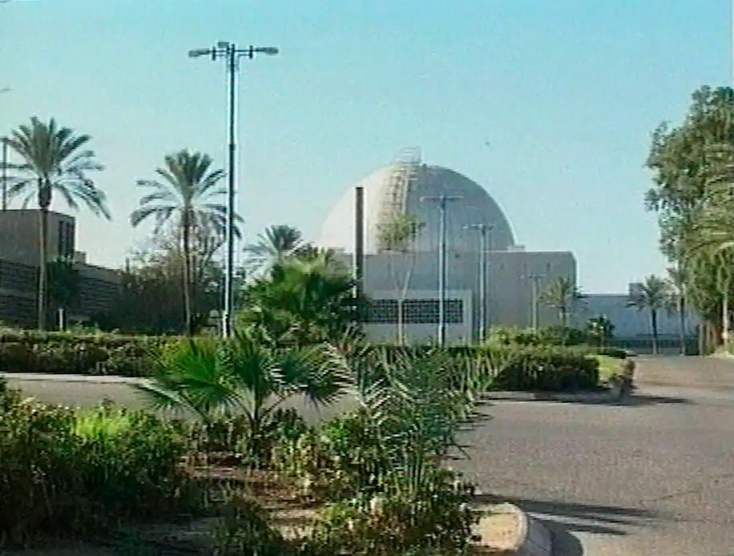Syrian missile strike triggers alarms near Israeli nuclear facility and retaliatory attack
Kareem Fahim
This image from a video aired on Jan. 7, 2005, by Israel’s Channel 10, shows what the station claims is the secret nuclear facility in the southern Israeli town of Dimona, the first detailed video of the site shown to the public. (Channel 10/AP)
JERUSALEM — A missile launched from Syria flew into southern Israel early Thursday, triggering air raid sirens near a nuclear facility, according to the Israeli military, raising fears of an escalation in ongoing tensions among Israel, Syria and Iran.
The attack triggered Israel’s air defense system, and explosions from the exchange were reportedly felt by several Israeli communities near the Shimon Peres Negev Nuclear Research Center. The military said the missile was not intercepted but exploded in midair. Local authorities reported debris falling some 20 miles (30 kilometers) from the facility, according to the Times of Israel.
An Israeli military official, briefing reporters overnight, said the Syrian missile probably was an errant attempt to hit one of its aircraft striking targets in the Syrian Golan Heights.
Russia says U.S. gave only minutes’ warning before strike in Syria
The nuclear facility — widely believed to be the seat of Israel’s unacknowledged nuclear weapons program — is located in the Negev Desert community of Dimona, south of the Dead Sea. It sits about 160 miles (256 kilometers) from the Golan border in Israel’s far north, a long distance for a surface-to-air missile.
Story continues below advertisement
The Israeli Defense Forces said it responded to the missile with retaliatory attacks against Syrian antiaircraft batteries. The Syrian state news agency SANA reported that Israeli war planes attacked facilities near the capital, Damascus, shortly after 1:30 a.m.
The burst of rockets injured four soldiers and caused some material damage, SANA said, adding that defense missiles brought down most of the rockets — a standard claim after such attacks. There was no mention of any strike launched from Syria toward Israel.
The exchange came during an escalating confrontation between regional adversaries Israel and Iran, which controls militias in Syria and along with Russia is one of the main military backers of President Bashar al-Assad. Israeli strikes against Iranian-backed targets in Syria have become increasingly common in recent months.
Story continues below advertisement
Earlier this month, Tehran vowed to retaliate after a suspected Israeli attack on Iran’s Natanz nuclear facility. Iranian officials said the attack involved an explosive device that caused a blackout at the facility and damaged centrifuges.
The bombing was the third time Iran’s atomic program had been targeted in less than a year. An earlier explosion at Natanz, in July, damaged a centrifuge assembly plant. In November, a top Iranian nuclear scientist was assassinated in a daytime ambush. Israel, which was widely suspected of carrying out both attacks, has neither confirmed nor denied its involvement.
Rising hostilities between Iran and Israel have also played out at sea, in a series of tit-for-tat attacks on tankers and other vessels. The latest incident occurred in early April, when an Iranian-flagged vessel in the Red Sea was damaged by mines.
Story continues below advertisement
The attack occurred hours before diplomats from Iran, the United States and the European Union gathered in Vienna for the start of negotiations aimed at reviving the 2015 nuclear deal between Tehran and six world powers.
Fahim reported from Istanbul; Sarah Dadouch in Beirut contributed to this report.

No comments:
Post a Comment